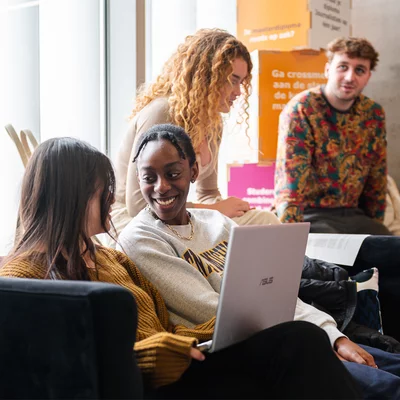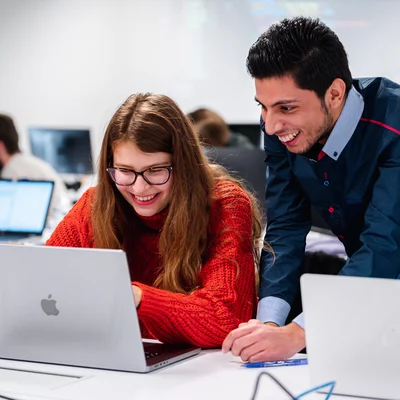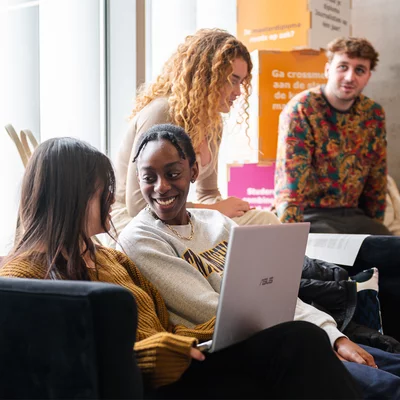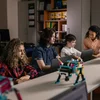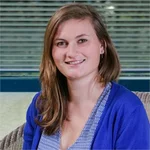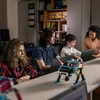
Young people and fake news: News barometer measures news consumption and wisdom
How do young people deal with fake news? Arteveldehogeschool conducts an annual large-scale study on this subject. The News Barometer charts the news use and news literacy of Flemish teenagers and young people aged 12 to 26. The aim is to come up with an updated version every two years to reflect the news use of young people over a longer period of time. The aim of the News Barometer is therefore to keep a finger on the pulse around young people and news, with an explicit focus on disinformation.

Expertise on fake news
Fake news is one of the most strongly developed areas of expertise within the expertise network Communication, Media and Design. In this third fake news project, we want to build on previous research projects on young people and fake news.
Previous projects on young people and fake news
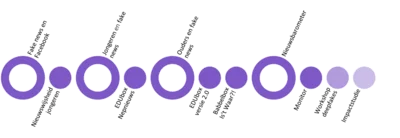
This figure provides a visual representation of all research. An overview including research reports and tools developed can be found at www.arteveldehogeschool.be/jongeren-en-nieuws.
Data from 2018 indicated that young people have difficulty recognising fake news (Deprez et al., 2018). They mostly rely on their own personal logic, background knowledge or intuition to assess the accuracy of a story.
In the meantime, however, we are three years on, years in which the news ecology changed a lot and fake news itself became even more widespread. A lot of disinformation circulated during the corona pandemic. The study 'News in corona time' (Anrys et al., 2020) made it clear that fake news is certainly not a fringe phenomenon on social media. As many as four in five respondents saw one of the fake news stories in the survey before.
News barometer: three research objectives
1. Monitoring
The launch of this News Barometer as a recurring large-scale survey of news use and wisdom among Flemish young people between 12 and 26, with a specific focus on fake news and disinformation.
2. Raising awareness around disinformation
Based on the research findings, further focus on initiatives that frame and highlight disinformation, including fake news and AI-manipulated disinformation, such as deepfakes.
- We are currently working on a workshop on synthetic media and deepfakes. In addition, existing tools will also be continuously updated, such as the EDUbox Fake News and the chat box "Is't It True?!" with fake news stories (both results from previous research phases).
- Finally, this also includes contributing to ad hoc projects focusing on news use and wisdom of young people. Over the years, Arteveldehogeschool has built up valued knowledge around young people and (fake) news, which is why there are regular requests to share knowledge as an expert.
3. Conducting an impact study
We also want to evaluate the various initiatives around increasing news literacy in which Arteveldehogeschool is involved to determine their impact.
Research realisations and publications

Teaching materials to questionnaire 2022
We provide additional teaching materials so that teachers can integrate the survey into a 50-minute lesson block on the topic of news and fake news. This presentation includes the correct answers from fake news test.
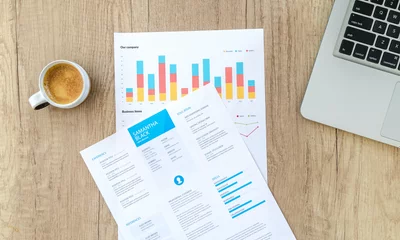
Research report
News Barometer 2022.
The News Barometer charts the news consumption and news literacy of Flemish teenagers and young people aged 12 to 26.
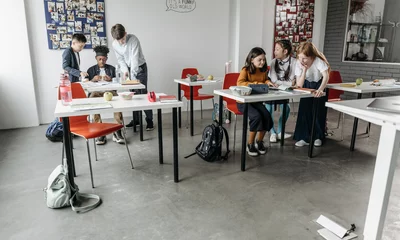
Teaching materials to questionnaire 2023
We provide additional teaching materials so that teachers can integrate the survey into a 50-minute lesson block on the topic of news and fake news. This presentation includes the correct answers from fake news test.
Meet the team
Work with us?
Request customised research
We are happy to help you formulate your research question-and approach.
